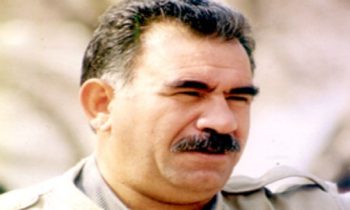 Omer Altiparmak, the former head of the Turkish intelligence department of the National Police Department, has claimed that Adem Uzun, a senior member of the outlawed Kurdistan Workers’ Party (PKK) responsible for the organization’s foreign affairs, leaked audio recordings that revealed secret talks took place between Turkish intelligence officials and members of the PKK in Oslo in 2010.
Omer Altiparmak, the former head of the Turkish intelligence department of the National Police Department, has claimed that Adem Uzun, a senior member of the outlawed Kurdistan Workers’ Party (PKK) responsible for the organization’s foreign affairs, leaked audio recordings that revealed secret talks took place between Turkish intelligence officials and members of the PKK in Oslo in 2010.
Altiparmak, who went to İzmir on Saturday to support 24 police officers who were detained on Jan. 27 on charges of illegal wiretapping, claimed that it was Uzun who recorded the secret talks with a bugging device and then leaked them to the media. He also said some negotiations are being conducted although they are illegal in Turkey, claiming: “There are some negotiations about the constitutional order. Some negotiations are under way with the PKK about an autonomous Kurdish administration [within Turkey] in the presence of an adjudicator state.” Altiparmak also said these negotiations are unlawful and against the Constitution.
Sharing some details about the 2010 secret Oslo talks between representatives of the Turkish state and senior PKK members, Altiparmak said: “If you remember, one of the attendees at the Oslo meetings was Sabri Ok. He is the man who recently said, ‘The Turkish police and soldiers should withdraw from Kurdistan.’ He was sitting on one side of the desk [at the Oslo talks]. On the other side of the desk was Adem Uzun, a PKK man responsible for [the PKK’s] foreign affairs. Unfortunately, you can call it a lack of experience or something else, this PKK man called Adem Uzun recorded all the talks with a bugging device and released them on the Internet sites of the PKK. Someone attempted to blame the police for the leak.”
Uzun was taken into custody by French police on Oct. 8, 2012 and then arrested by the court on Oct. 10, along with two other PKK members.
Uzun, who is believed to have played a key role in providing logistical support to the PKK in Europe, and three other PKK members were first taken into custody in France on June 12, 2012 as part of an investigation that was launched by French police looking into the illegal and financial activities of the PKK in France.
Altiparmak went on to claim that a large-scale investigation of the Kurdistan Communities Union (KCK) was launched on the order of former Prime Minister and current President Recep Tayyip Erdoğan in 2009.
The KCK, an umbrella organization that includes the PKK, was accused of attempting to establish an alternative system of governance. Most of the accused faced charges of membership in and/or aiding and abetting a terrorist group.
The Oslo talks refer to meetings between some senior PKK operatives and National Intelligence Organization (MIT) officials in order to find a peaceful solution to the Kurdish problem.
In September 2011, an almost 50-minute-long recording revealed for the first time the secret talks held in Oslo in 2010 between representatives of the Turkish government and members of the PKK after Hakan Fidan was appointed the new undersecretary of MIT, replacing Emre Taner.
At the time, the development was interpreted as an attempt to influence Turkish public opinion against the government, which was trying to employ new methods to peacefully resolve the Kurdish question, which has existed since the first years of the Turkish Republic.
Senior PKK operative Murat Karayılan had said in an interview in June 2012 that the groundwork for the Oslo talks was prepared by the United Kingdom and that they made the audio recordings but denied having leaked the recordings and documents of the Oslo talks.
In 2013 Ocalan called for a “historic” ceasefire, telling his fighters to lay down their arms and withdraw from Turkish soil, after many months of secret negotiations with the Turkish government.
Since it was established in 1984 the PKK has been fighting the Turkish state, which still denies the constitutional existence of Kurds, with the aim of creating an independent Kurdish state, but now limited its demands to to establish an autonomous Kurdish region and more cultural rights for ethnic Kurds, who make up around 22.5 million of the country’s 75-million population but have long been denied basic political and cultural rights, its goal to political autonomy. A large Turkey’s Kurdish community openly sympathise with PKK rebels.
